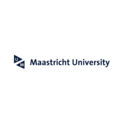In short
Titanium dioxide is a chemical substance that is found in a number of commonly consumed products, such as food, cosmetics, personal care products and medicines. In 2021, it was banned as a food additive by the European Commission due to safety concerns. This project aims to determine which individuals in the Belgian population are most affected by exposure to this potentially harmful chemical, and to what extent the recent ban has positively impacted public health.
Project description
Our environment is said to be the main driver of health and well-being. In fact, it is responsible for more than 70% of the burden of chronic diseases worldwide, such as cancer and diabetes. In recent years, researchers have emphasised the need to define, quantify and measure the environment’s role on our health since it provides the greatest opportunity for prevention of disease. Appropriately, the so-called ‘exposome’ approach was born. As a counterpart to the genome, the exposome represents the totality of non-genetic or environmental exposures of an individual throughout their lifetime. This includes diet, air pollution, green space, income and psychological stress, among others.
Chemicals play an important role therein since their presence in our environment is extensive. Titanium dioxide is one such chemical to which we are exposed to in our everyday lives through a variety of sources. With this project, we aim to estimate the exposure to titanium dioxide through food in the Belgian population, both before and after the ban. We will achieve this by matching measured concentrations in food to consumption patterns derived from relevant surveys. As a first step towards a more holistic approach to exposure assessment, we will also consider interactions with other titanium dioxide intake routes and closely related substances. Overall, this project allows us to assess the socio-economic implications of the recent ban and facilitate future public health recommendations by developing an effective methodological framework.
Sciensano's project investigator(s):
Service(s) working on this project
Partners



